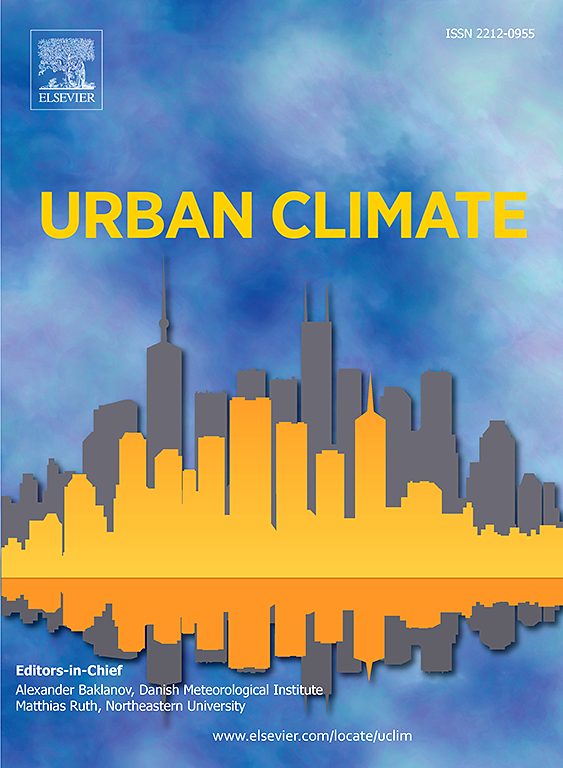Government-involved urban meteorological networks (UMNs): A global review
IF 6
2区 工程技术
Q1 ENVIRONMENTAL SCIENCES
引用次数: 0
Abstract
Studies on urban climate are important to this rapidly urbanizing world as they play a role in monitoring the quality of life in urban areas. Urban meteorological networks (UMNs) have thus emerged in recent decades to collect data for urban climate research worldwide. Government involvement in an UMN project is beneficial to standardizing network configurations, maintaining stations durability, striking a balance between stakeholders from various disciplines, and the implementation of future climate-related policies. This review draws upon a total of 33 government-involved projects, examining their project objectives and outcomes, UMN configurations, and management methods. There are two common network types: single-sourced UMNs which are deployed more systematically, and crowdsourced UMNs which can be managed in a more cost-efficient manner while promoting citizen science. A major advantage of UMNs over conventional regional meteorological networks is its high-density setting that can increase spatial resolution of weather observations within the city. However, most UMNs are still at an experimental stage, and have room for improvement in data quality and robustness. Nevertheless, the reviewed projects demonstrated their importance in improving the understanding of urban microclimates, weather services, and cross-disciplinary research. To facilitate further advancement in the field of urban climate research, more comprehensive yet locally-adaptable guidelines are recommended regarding UMN setup, management, data quality check and interpretation. Governments are encouraged to continue taking the lead in collaborating with local communities and other cities, so that the full potential of UMNs in enhancing urban living quality and formulating future climate-related policies can be unleashed.
政府参与的城市气象网络(UMNs):全球综述
城市气候研究对这个快速城市化的世界非常重要,因为它们在监测城市地区的生活质量方面发挥着重要作用。因此,近几十年来出现了城市气象网络(umn),为全球城市气候研究收集数据。政府参与UMN项目有利于标准化网络配置、维护站点耐久性、在不同学科的利益相关者之间取得平衡,以及实施未来与气候相关的政策。本次审查共涉及33个政府参与的项目,审查其项目目标和成果、UMN配置和管理方法。有两种常见的网络类型:更系统地部署的单一来源umn和可以在促进公民科学的同时以更具成本效益的方式管理的众包umn。与传统的区域气象网络相比,umn的一个主要优势是它的高密度设置,可以提高城市内天气观测的空间分辨率。然而,大多数umn仍处于实验阶段,在数据质量和鲁棒性方面仍有改进的空间。然而,所审查的项目显示了它们在提高对城市小气候、气象服务和跨学科研究的理解方面的重要性。为了促进城市气候研究领域的进一步发展,建议在UMN的设置、管理、数据质量检查和解释方面制定更全面而又适合当地的指南。鼓励各国政府继续带头与当地社区和其他城市合作,充分发挥umn在提高城市生活质量和制定未来气候相关政策方面的潜力。
本文章由计算机程序翻译,如有差异,请以英文原文为准。
求助全文
约1分钟内获得全文
求助全文
来源期刊

Urban Climate
Social Sciences-Urban Studies
CiteScore
9.70
自引率
9.40%
发文量
286
期刊介绍:
Urban Climate serves the scientific and decision making communities with the publication of research on theory, science and applications relevant to understanding urban climatic conditions and change in relation to their geography and to demographic, socioeconomic, institutional, technological and environmental dynamics and global change. Targeted towards both disciplinary and interdisciplinary audiences, this journal publishes original research papers, comprehensive review articles, book reviews, and short communications on topics including, but not limited to, the following:
Urban meteorology and climate[...]
Urban environmental pollution[...]
Adaptation to global change[...]
Urban economic and social issues[...]
Research Approaches[...]
 求助内容:
求助内容: 应助结果提醒方式:
应助结果提醒方式:


